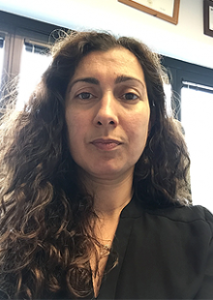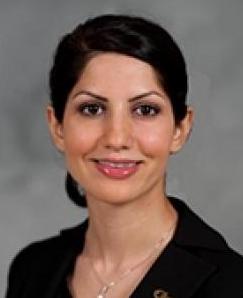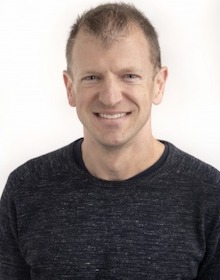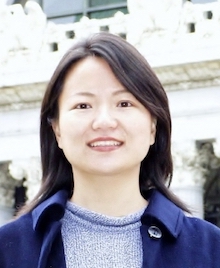
“Mindfulness means paying attention in a particular way: on purpose, in the present moment, and nonjudgmentally.” Jon Kabat-Zinn
As Georgia Tech faculty become increasingly aware of the challenges their students face, many are choosing to incorporate mindfulness training and practices into the curriculum and co-curriculum. While their approaches vary, faculty goals include helping students develop self-awareness, self-compassion, empathy, and techniques to calm and focus the mind.
- What are examples of mindfulness questions or discussion prompts that students can relate to?
- How do you help students focus on the topic at hand?
- How can gratitude and mindfulness be a supporting/helpful part of the evaluative process?

John Cressler, Electrical and Computer Engineering
I begin each of my classes, no matter if ECE or non-ECE, with a few words, a deep breath, and 2-minutes of “centering” – to allow students to focus and enter the “sacred space” of learning. Universally works well. I participate with students in this practice.
I motive where we are going before we go there.
Gratitude and mindfulness are always a part of my classes.

Mark Losego, Materials Science and Engineering
I am working to develop “exam wrappers” / “self-evaluations” that are more proactive and equitable. Based on “exam wrapper” questions I’ve solicited from colleagues, I’ve built some exam wrappers/self-evaluations on Canvas quizzes that can be broadly shared amongst others on campus. Specifically, I’m interested in providing students with these evaluations near the start of the semester and then again after the first exam. Importantly, in the questions I also include web links to campus resources that can help address “common” problems like lack of motivation, time management, feelings of belonging — trying to make students aware of these resources “ahead of time” — things like academic coaching, OMED, etc.
I have trouble remembering all the things I need to accomplish in a given week.
1. This is completely me. If so, and you aren’t doing well, consider academic coaching:
https://advising.gatech.edu/academic-coaching
2. This is mostly me. If so, and you aren’t doing well, consider academic coaching:
https://advising.gatech.edu/academic-coaching
3. This is sort of me.
4. This is not really me.
5. This is not me at all.

Kyriaki Kalaitzidou, Mechanical Engineering
I usually teach senior level elective courses that are cross-listed in the CoE and i make sure (for 2 out of 100 points) that the students tell me why they take the course, what is the goal in the class (besides getting a grade representative of their efforts). I also keep reminding them i am going to work with them to accommodate job interviews they may have or other major deadlines or personal events.
I tell them that it’s ok if they do not think this course is the most important and interesting course they will ever take…because i am pretty sure it is not but the chose to take it and they need to do their best and work with me to identify subtopics and concepts they are interested in. i break the material in units and provide an overview of each unit, when one is completed and remind them often how the current unit is connected to the previous or next ones.

Pardis Pishdad-Bozorgi, Building Construction
I help students focus on the topic at hand by clearly stating the learning objectives for every 15 min of the presentation, asking questions, and re-stating concluding remarks.
I try to be mindful of students’ emotional expression, facial and body language and will try to individually follow up with the students if I notice that they might be dealing with some issues.

Jake Soper, Chemistry and Biochemistry
I ask the class to submit and share “weekend recommendations” at the start of class every Friday. These can be things they are anticipating or have recently enjoyed and would recommend to me/classmates. For me, it’s an approachable way to introduce a weekly gratitude exercise into the class.

Ying Zhang, Electrical and Computer Engineering
I collect mid-term course feedback from students, and discuss all feedback with students in class to address their concerns and collectively decide what changes need to be made to improve their learning experience.

Narin Hassan, Literature, Media, and Communication
Creating a sense of belonging and well-being is foundational for all my classes and incorporated within them from the moment I introduce and organize the class, develop the syllabus and assignments, and structure the course material (often my classes discuss topics related health and well-being). Students are encouraged to get to know each other early in the semester and often work in teams as discussion leaders. This is an opportunity for them to share their thoughts on material and facilitate our discussion. I often have a mid-semester “assignment” that asks them to do something to take care of themselves—whether it is taking a walk, or reading outdoors, or going to a park or outdoor space, or taking on a new hobby or activity that is not study-related. We take time in class reflecting upon these experiences and recognizing how we can better manage stress and create better work environments.
I’m trained as a yoga and meditation instructor, so I make opportunities outside of class for students who are interested in learning and engaging with these practices. And within the classroom, I encourage all of us to be more conscious of our connections as a community, to communicate respectfully, to recognize and welcome differences in opinion, and to work through difficult course topics and stressful moments in the semester mindfully and with awareness of the tools we have to manage them. Sometimes that means taking a moment to pause and reflect, or beginning class with a moment to ground and breathe, or taking time to check in and see how everyone is doing so we can get more centered before addressing course topics. We can’t address well-being and mindfulness in the classroom until we engage with healthy and mindful practices more deeply ourselves and in all aspects of what we do. Practicing mindfulness and promoting well-being effectively and intuitively also requires a shift in our culture, work environments, and priorities, so I work toward making these efforts in my own life and encourage creating conversations and initiatives related to them in all aspects of my work at GT.
